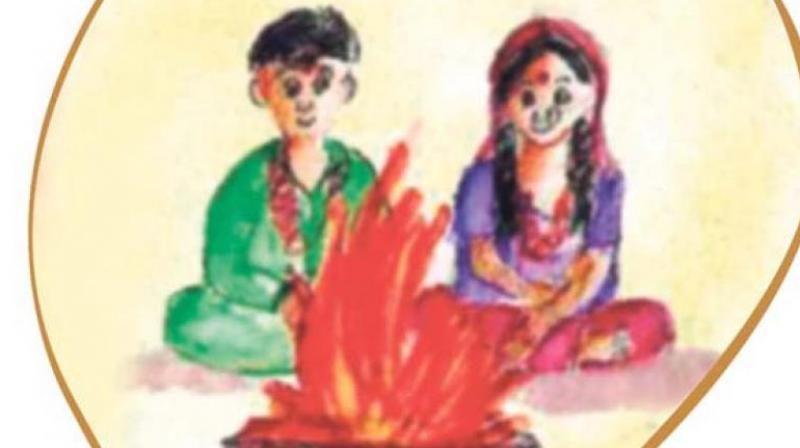Centre defends law on child marriage

New Delhi: Centre on Tuesday defended in the Supreme Court the exception provided in Section 375 IPC, excluding intercourse with a minor girl involved in child marriage as an offence, to protect the institution of marriage.
A bench of Justices Madan B. Lokur and Naveen Gupta is hearing petitions relating to conflict between the IPC, which terms children as those aged under 15 years, and Protection of Children from Sexual Offences Act (POCSO) which terms children as those aged under 18.
But as far as the IPC is concerned, under an exception to Section 375, a man is not guilty if he has sexual intercourse with his ‘wife’ if she is more than 15 years old. This, when child marriage continues to be illegal under the Prohibition of Child.
The petitioners argued that sexual intercourse with any child below the age of 18 should amount to rape and the anomaly brought in by the IPC shall not come in the way of the court declaring the exception as unconstitutional. It was argued that provision is contrary counter to the child marriage restraint act that puts 18 as the age of marriage for girls and 21 for men.
It was submitted that there was an anomaly, viz, those who are not married and for them, the age of sexual consent is 18. Then there are those who are married and a husband can have sexual intercourse with his wife if she is above the age if 15, irrespective of her consent.
On behalf of the Centre senior advocate Rana Mukherjee defending Exception 2 in Section 375, submitted that 46% of the married women between the ages of 18 and 29 had their wedding ceremony before they were 18. Hence, he said criminalising the consummation of the marriage union, as a serious offence such as rape would not be appropriate and practical.
When the Bench expressed concern over the increase in the number of marriages, counsel said, it was true that child marriages are a reality in India where economic and educational development was uneven. It had therefore decided to retain the exception in Section 375. He said lawmakers had taken a pragmatic view regarding the issue of ‘marital rape’ as marriage being a social institution was the bedrock of any society and hence, needs to be protected. and if need be parliament would take a call to amend the provision and the court should not legislate.

